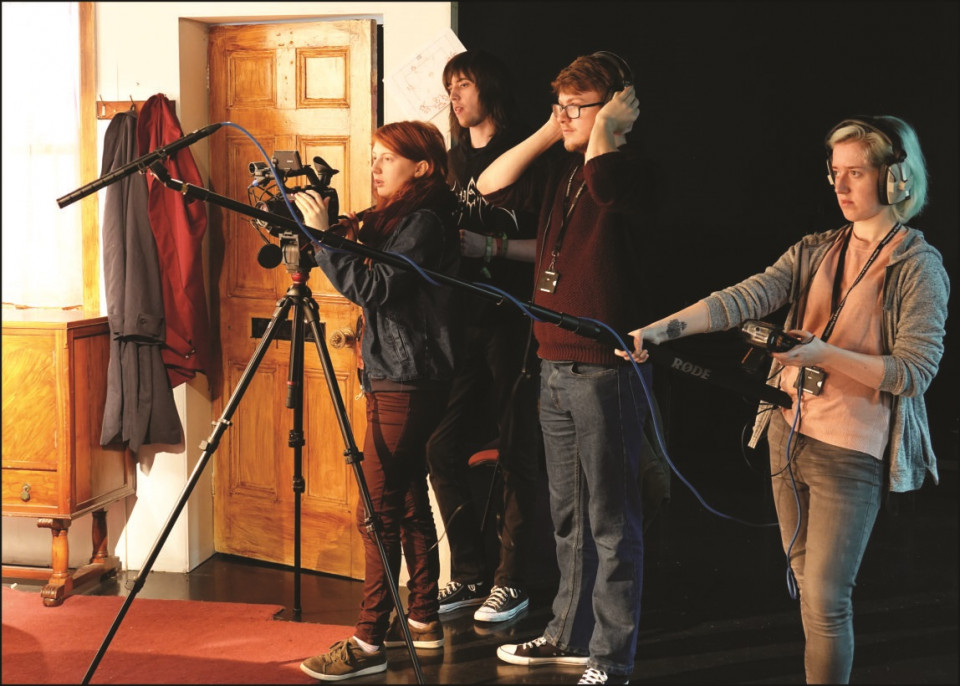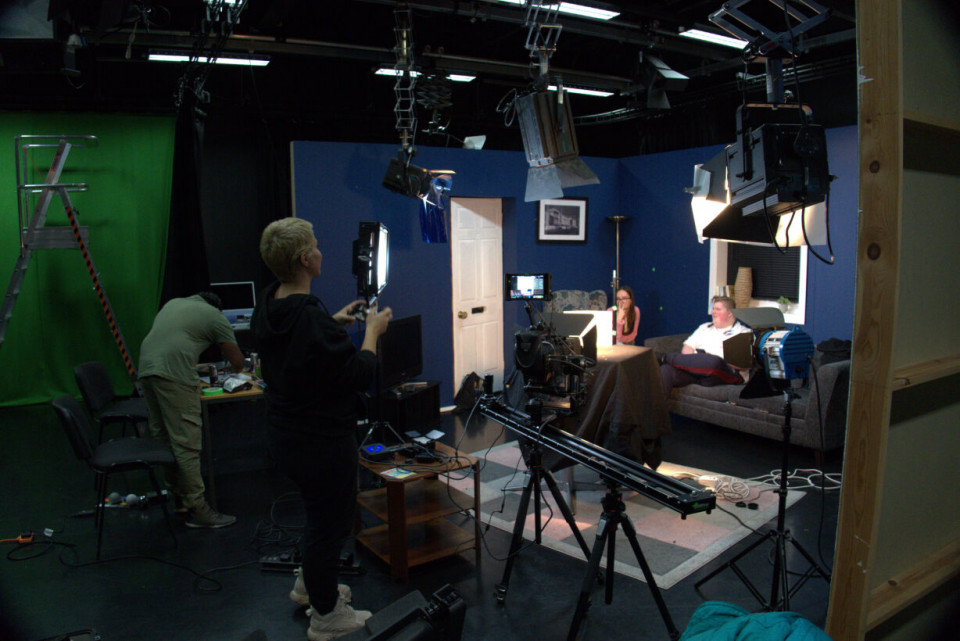
University of Bolton, Deane Road, Bolton. BL3 5AB
Tel:
Email:


“At the University of Bolton, we take great pride in providing a quality, supportive learning environment for our students.”
Professor George E Holmes DL | President & Vice Chancellor
“...tutors are very supportive and you’re not just a student ID number, at this university you are an individual with a name.”
Ellisse Vernon | BSc (Hons) Adult Nursing
Back to menu
Back to menu
Study with an Off-Campus Partner
Back to menu
Back to menu
University of Bolton, why we are the right choice
Location - Bolton, Greater Manchester

03/05/2024
Operating in a globalized economy offers significant opportunities and challenges for the film and television industries:

1. Cross-border Trade: Globalization facilitates content exchange across borders, allowing film and television companies to reach new audiences. However, navigating cross-border trade complexities like tariffs and cultural differences can be challenging. Content localization, language translation, and adaptation to local preferences are essential for success in foreign markets.
2. International Investment: Increased international investment allows for global expansion. Co-productions between countries are becoming more common, but managing diverse stakeholders and balancing creative visions across cultures presents challenges.
3. Cultural Considerations: Cultural sensitivity is paramount when operating globally. Content creators must consider diverse audiences' norms, values, and sensitivities to avoid causing offense. Collaborating with local talent and cultural experts ensures content resonates with audiences in different regions.
4. Geopolitical Risks: Geopolitical factors like trade disputes and regulatory changes can impact international operations. Government intervention in media and content distribution restrictions pose risks. Companies must conduct thorough risk assessments and develop contingency plans to mitigate geopolitical risks.
In summary, globalization presents both opportunities and challenges for the film and television industries. Embracing cultural diversity, fostering collaboration across borders, and adapting to changing market dynamics are key to leveraging globalization's benefits while mitigating associated risks.
Two of the major areas of concern in Film and TV industries are AI and AR, which are reshaping the industries, eg:

1. Content Creation and Personalization: AI algorithms analyse viewer preferences, leading to more personalized content and targeted advertising.
2. Enhanced Viewing Experience: AR allows viewers to interact with content in new ways, enhancing their experience.
3. Production Efficiency: AI-powered tools streamline production processes, reducing costs and speeding up filmmaking.
4. Visual Effects and CGI: AI-generated visual effects and CGI improve quality and accessibility.
5. Virtual Production: AI and AR enable virtual production techniques, offering flexibility and cost savings.
6. Immersive Storytelling: AR provides immersive storytelling experiences, blurring fiction and reality.
7. Content Discovery and Distribution: AI-driven content recommendations and AR distribution channels enhance viewer engagement.
8. Challenges and Ethical Considerations: AI and AR raise concerns like data privacy and algorithmic bias, requiring careful consideration.
Overall, AI and AR offer opportunities for innovation and improvement in the film and television industries but require ethical and strategic considerations. Regulatory frameworks, intellectual property rights, and privacy concerns in the digital age pose significant challenges and opportunities for the film and television industries:

1. Regulatory Frameworks: in the digital age, regulations governing various aspects of the film and television industries, including content distribution, advertising standards, and media ownership, are adapting to online streaming, video-on-demand services, and user-generated content platforms. Regulators balance protecting consumers, ensuring fair competition, and upholding freedom of expression while fostering innovation. International cooperation is crucial due to content crossing borders, leading to complex jurisdictional issues.
2. Intellectual Property Rights (IPR): Protecting creative works is crucial for the film and television industries. Piracy and unauthorized distribution threaten revenues and sustainability. Industry relies on copyright laws, digital rights management (DRM) technologies, and anti-piracy measures. Striking a balance between protecting intellectual property and ensuring consumer access remains contentious. Emerging technologies like blockchain offer new ways to enforce intellectual property rights.
3. Privacy Concerns: The digital age brings data-driven content delivery and personalized advertising, raising privacy concerns about personal information collection, use, and sharing. Streaming platforms and smart TVs gather vast amounts of viewer data. Regulators must navigate privacy regulations like the GDPR to ensure user privacy is respected. Transparency, informed consent, data anonymization, and robust security measures are essential.
In this emerging environment, creative professionals in the Film and TV industries face challenges like job insecurity and reliance on freelance work. Strategies to overcome these include:

1. Diversify Skillset: Broaden expertise to access more opportunities.
2. Build a Strong Network: Networking is crucial for new opportunities.
3. Develop a Personal Brand: Stand out in a competitive market.
4. Embrace Flexibility: Adapt to different work arrangements.
5. Financial Planning: Plan for irregular income with savings and budgeting.
6. Continuous Learning: Stay relevant with ongoing education.
7. Seek Support and Mentorship: Connect with mentors and peers for guidance.
8. Maintain a Positive Mindset: Focus on strengths and view setbacks as opportunities for growth.
By implementing these strategies, creative professionals can navigate challenges and build resilient careers.
In conclusion: celebrating diverse cultural perspectives in visual arts enriches understanding and promotes cross-cultural dialogue. Artists should approach cultural inspiration with sensitivity and authenticity, staying true to their experiences while respecting diverse audiences. Inclusive representations and open-mindedness in interpretation are essential for fostering cultural appreciation and a more interconnected global community.